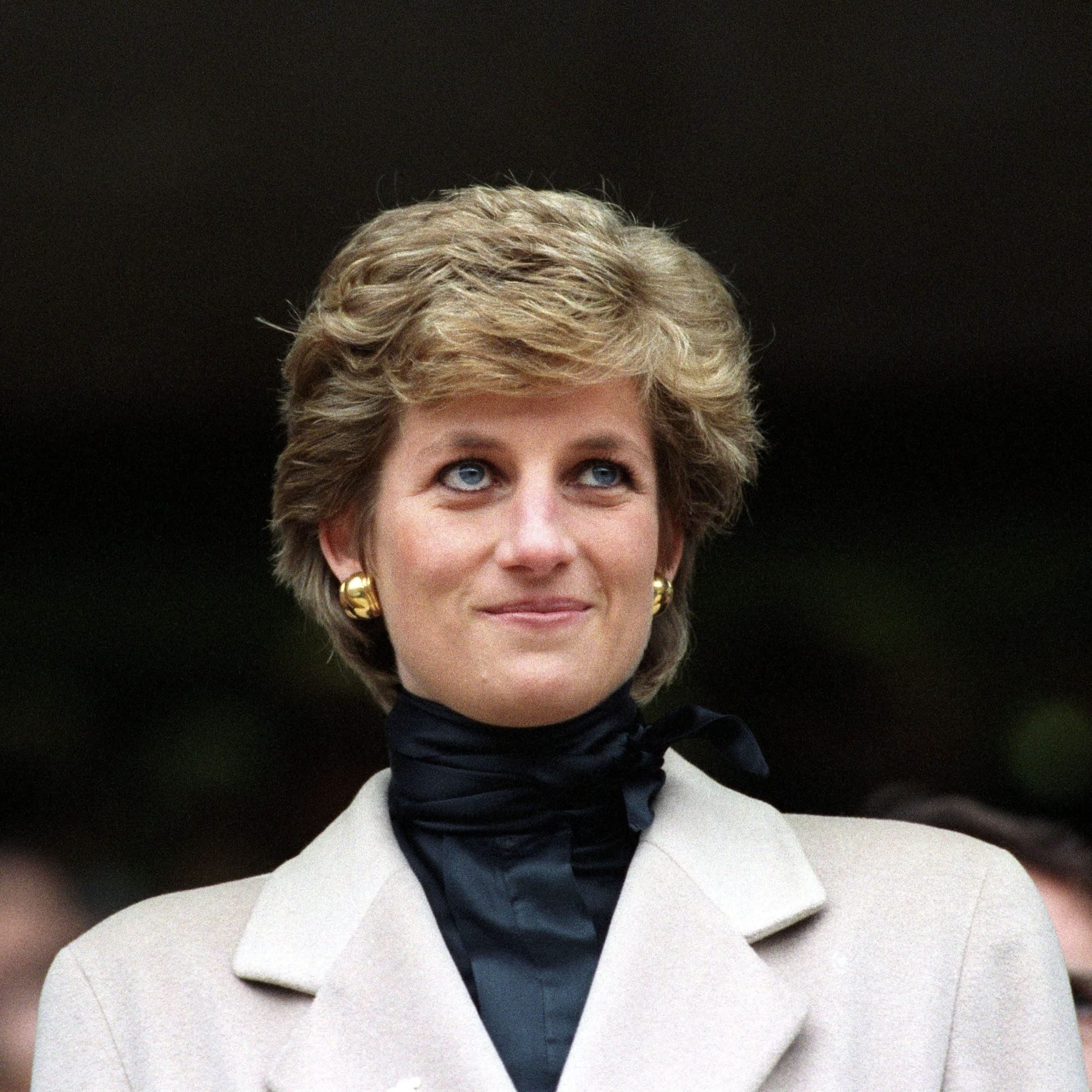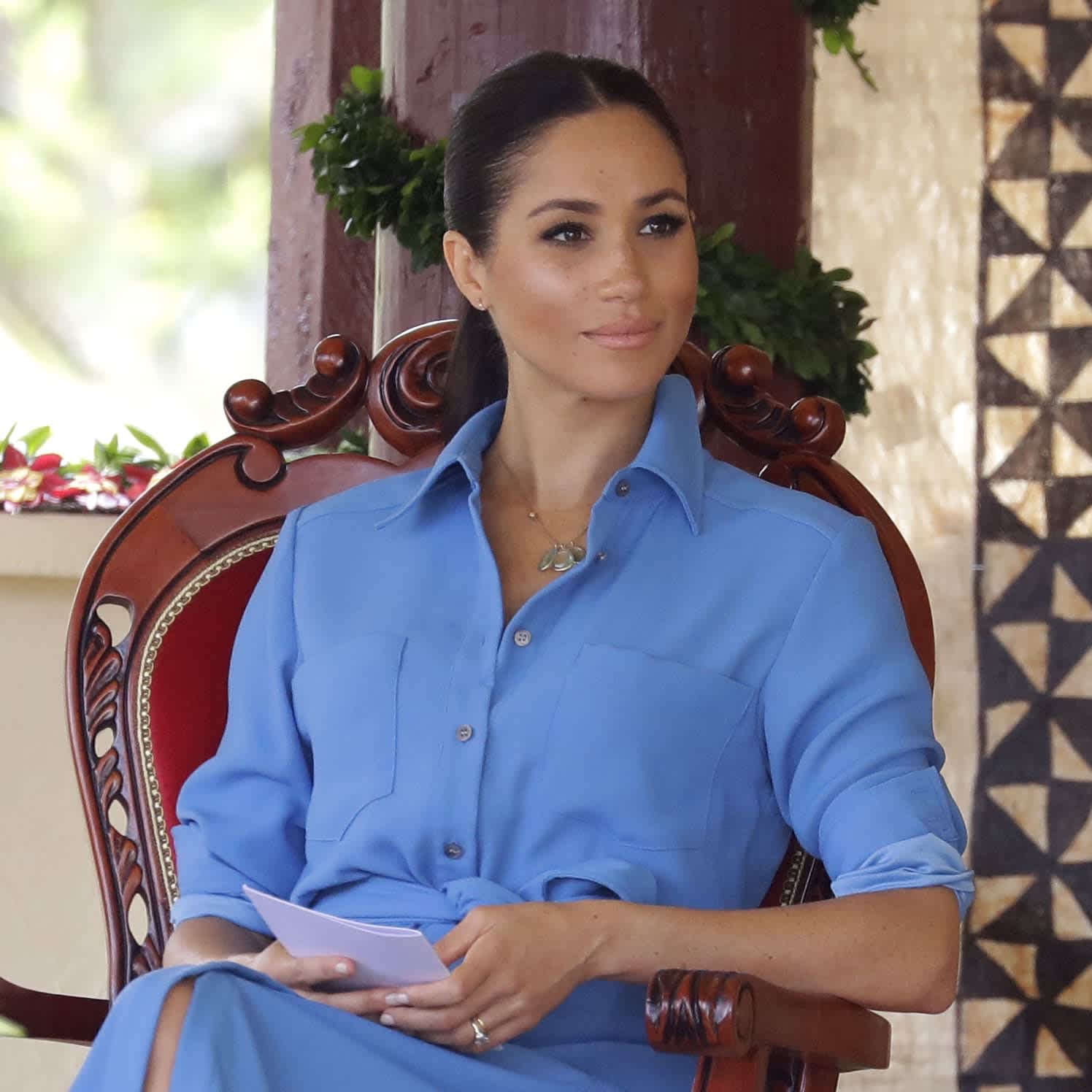
- POPSUGAR Australia
- Fitness
- Decades Before Meghan, Princess Diana Broke Royal Barriers by Speaking About Mental Illness
Decades Before Meghan, Princess Diana Broke Royal Barriers by Speaking About Mental Illness

Trigger warning: the following article mentions suicidal ideation, self-harm, depression, and experiences with eating disorders.
In the first interview since their departure as senior members of the royal family, Meghan Markle and Prince Harry spoke with Oprah Winfrey about some exciting news – they’re expecting a baby girl! – but in that same interview, which aired in the United States on Sunday, March 7, the two also discussed painful subjects. Meghan revealed that her mental health had been declining due to a culmination of forces working against her: she said she was continuously silenced, that she and Archie faced racism from the royals, and she was not physically or mentally protected from the slander of the British tabloids. She had reached a breaking point, leading to suicidal ideation that was “very clear and very scary.” This, according to Harry, was a terrifying reminder of similar struggles his mother, Diana, Princess of Wales, faced.
“My biggest concern was history repeating itself. I’ve said that before on numerous occasions very publicly. And what I was seeing was history repeating itself, but more, perhaps, or definitely far more, dangerous because then you add race in and you add social media in,” the Duke of Sussex said. “And when I talk about history repeating itself, I’m talking about my mother.” Harry went on to say, “When you can see something happening in the same kind of way, anybody would ask for help.” Meghan and Harry did ask for help from the royal family, although the institution did not intervene.
Before her tragic death in August 1997, Princess Diana spoke openly about postpartum depression, bulimia, and self-harm. She challenged the stigma around mental illness, encouraging others to get the help they need while, at the same time, she faced mounting pressures as a royal in the spotlight with a marriage going south.
Ahead, check out three separate times that Princess Diana spoke powerfully about mental illness. We also suggest streaming Diana: In Her Own Words, where you can hear narrations Diana sent to journalist Andrew Morton. Through her openness and willingness to share personal experiences, the princess gave us an inside look into her struggles and encouraged others to address and support their mental health.
"Maybe I Was the First Person Ever to Be in This Family Who Ever Had a Depression"
Princess Diana famously took a tell-all interview opportunity with BBC journalist Martin Bashir in 1995. (Some argue Bashir used deception in order to land the interview in the first place, and though there will be no criminal investigation of the journalist, there’s still an independent inquiry in the works.) In this 1995 interview, Diana spoke about bulimia, self-harm, and postpartum depression.
Diana revealed that after she gave birth to her eldest, Prince William, she had postpartum depression that was never discussed. “You’d wake up in the morning feeling you didn’t want to get out of bed, you felt misunderstood, and just very, very low in yourself,” she said, according to an online transcript from the BBC. This was a first for her – she stated that she never had this sort of depression before, noting how overwhelming a change in roles became for her (she married in 1981, stepped into her position at the palace, and gave birth to her son in ’82).
When asked how the royal family reacted to her postnatal depression, Diana said, “Well maybe I was the first person ever to be in this family who ever had a depression or was ever openly tearful. And obviously that was daunting, because if you’ve never seen it before how do you support it?” She added that people stuck a “wonderful new label” on her for their benefit, calling her “unstable.”
It was then that Diana began to self-harm. “When no one listens to you, or you feel no one’s listening to you, all sorts of things start to happen,” she explained. “For instance you have so much pain inside yourself that you try and hurt yourself on the outside because you want help, but it’s the wrong help you’re asking for.” She added, “But I was actually crying out because I wanted to get better in order to go forward and continue my duty and my role as wife, mother, Princess of Wales. So yes, I did inflict upon myself. I didn’t like myself, I was ashamed because I couldn’t cope with the pressures.”
When asked if she thought the British people were happy with her, Diana responded that she thought they needed someone to support them, someone who understood. “I see it as a possibly unique role, and yes, I’ve had difficulties, as everybody has witnessed over the years, but let’s now use the knowledge I’ve gathered to help other people in distress,” she stated. And when asked, again, if she thought she could help people who are suffering, Diana boldly replied, “I know I can, I know I can, yes.”
Bulimia "Was a Symptom of What Was Going On in My Marriage"
Diana said in that same BBC interview that she felt the need to “perform” through it all. (This sounds similar to the anecdote that Meghan shared in her interview with Oprah where she pushed herself to attend an event in 2019, but when the theater lights went down, she’d couldn’t hold back tears.)
Diana also spoke about the years that she had bulimia, calling it a “secret disease.” She continued, “You inflict it upon yourself because your self-esteem is at a low ebb, and you don’t think you’re worthy or valuable,” adding that it gave her temporary comfort before feeling “disgusted.” She referred to it as a destructive pattern.
Bulimia, she said, “was a symptom of what was going on in my marriage.” She and Prince Charles wanted to “keep everything together” despite the fact that it was very publicly coming to an end, and this pattern, for her, was an escape mechanism. She stated that people, again, used her eating disorder as a way to paint her as unstable.
Eating Disorders "Turn the Nourishment of the Body into a Painful Attack" on the Self
In 1993, Diana spoke at a conference about eating disorders in general and discussed the role that societal pressure plays in them. “I have it, on very good authority, that the quest for perfection our society demands can leave the individual gasping for breath at every turn. This pressure inevitably extends into the way we look,” she began. She said that eating disorders, like anorexia and bulimia, “show how an individual can turn the nourishment of the body into a painful attack on themselves.”
Though she did not speak on her own experiences with an eating disorder, Diana mentioned conversations she’d had and observations she’d made while visiting with people who were being treated for them. She called on the audience to listen to youth especially.
“All of us can help prevent the seeds of this disease developing. As parents, teachers, family, and friends, we have an obligation to care for our children . . . in ways which clearly show our children that we value them,” Diana said. “They, in their turn, will then learn how to value themselves.”
These were, reportedly, her first public comments on eating disorders.
"Women Have a Right to Their Own Peace of Mind"
Princess Diana acted as patron for the health and social services nonprofit Turning Point. At a conference run by the nonprofit in June 1993, Diana spoke about women’s mental health and how hard it is to be seen as the caretakers of society when we can’t take care of ourselves. She spoke, too, about this belief engrained in us that admitting that we need help takes “enormous courage.”
Diana discussed how managing depression alone can exacerbate the darkness; it’s lonely. She speaks about, as well, the fact that tranquilizers and sleeping pills were historically overprescribed to women. “These pills, these ‘mother’s little helpers,’ have left a legacy of millions of women locked into a terrible torment, doomed to a life of dependence from which there is still very little help to escape.”
Diana added: “Isn’t it normal not to be able to cope all the time? Isn’t it normal for women as well as men to feel frustrated with life? Isn’t it normal to feel angry and want to change a situation that is hurting? Perhaps we need to look more closely at the cause of the illness rather than attempt to suppress it. To accept that putting a lid on powerful feelings and emotions cannot be a healthy option.”
Toward the end of her speech, Diana stated of women: “If they feel they must sacrifice everything for their loved ones even at the cost of their health, their inner strength, and their own self-worth, they will live only in the shadow of others and their mental health will surely follow.” It’s important that women are heard, she said, declaring, “Women have a right to their own peace of mind.”
If you or a loved one are experiencing suicidal ideation or are at risk, the National Suicide Prevention Lifeline has several resources and a 24/7 helpline at 1-800-273-8255.
If you are feeling anxious or depressed and need help finding help or resources, the Anxiety and Depression Association of America and the National Alliance on Mental Illness (1-800-950-6264) have resources available.
If you or someone you know is struggling with disordered eating or an eating disorder, the National Eating Disorder Association (NEDA) has resources available including a 24/7 helpline at 1-800-931-2237, or you can text “NEDA” to 741741.


